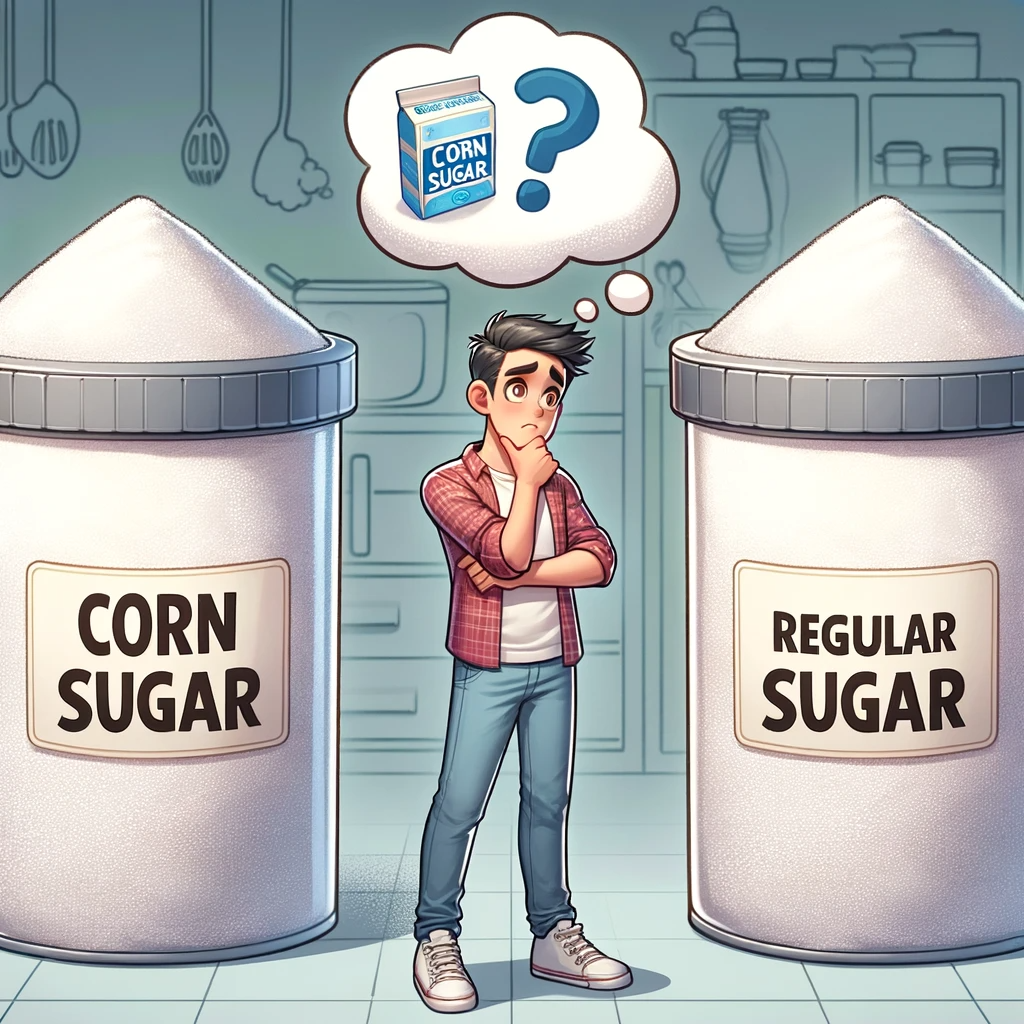The Sweet Deception: High Fructose Corn Syrup and Insulin Resistance

The Sweet Deception: Unveiling the Impact of High Fructose Corn Syrup 🍭🚨
Hello, Mindful Diabetes warriors! 👋 We’re incredibly grateful to have you with us as we delve into a critical topic that has profoundly impacted our food industry and health: High Fructose Corn Syrup (HFCS). Introduced in the late 1970s as an economical substitute for sugar, this corn-derived artificial sweetener quickly became ubiquitous in various food and beverage products.
Yet, this seemingly minor change has had far-reaching consequences, playing a significant role in the rise of insulin resistance and type 2 diabetes. Specifically, the connection between HFCS and insulin resistance is undeniable. Join us as we uncover the hidden truths behind HFCS and its effects on our well-being in today’s post. 🍽️💡
.
The Stealthy Rise of High Fructose Corn Syrup
High fructose corn syrup stealthily gained popularity among food manufacturers due to its economic advantages, extended shelf life, and intense sweetness. It soon started replacing sucrose (table sugar) in a wide array of products, from sugary drinks to processed foods, and even in seemingly healthy options like yogurt and bread.
Unpacking the Connection: Insulin Resistance
Before we explore the intricate relationship between HFCS and insulin resistance, let’s ensure we have a solid grasp of what insulin resistance entails. Insulin, a hormone produced by the pancreas, acts as the body’s regulator of blood sugar levels. When we consume food, especially meals rich in carbohydrates, our blood sugar levels naturally rise. In response, the pancreas releases insulin, which assists cells in absorbing and utilizing sugar for energy.
However, when our cells develop resistance to insulin’s signals, they fail to respond adequately to the hormone. As a result, the pancreas compensates by producing more insulin, leading to elevated insulin levels in the bloodstream. Over time, this resistance can result in high blood sugar levels, ultimately contributing to the development of type 2 diabetes.
The Connection Between HFCS and Insulin Resistance
Now, let’s unravel how high fructose corn syrup fits into this complex equation. Unlike other sugars, HFCS contains a higher proportion of fructose, one of the two simple sugars in table sugar (the other being glucose). While glucose is readily absorbed by the body’s cells, fructose metabolism primarily takes place in the liver.
Excessive consumption of fructose, particularly in the form of HFCS, can overwhelm the liver’s capacity to process it. As a result, the liver converts excess fructose into fat, leading to a condition known as non-alcoholic fatty liver disease (NAFLD). NAFLD is closely associated with insulin resistance and an increased risk of type 2 diabetes.
HFCS Causes Hormonal Disruption
Moreover, HFCS can disrupt hormonal signaling related to appetite regulation. It doesn’t stimulate the production of insulin and leptin (a hormone signaling satiety) to the same extent as glucose does. Consequently, individuals consuming HFCS-laden products may experience increased hunger and consume more calories, contributing to weight gain and insulin resistance.
Protecting Your Health: Mindful Diabetes Approach
Incorporating healthier dietary choices into your lifestyle is a pivotal step in reducing the risk of insulin resistance and type 2 diabetes. Here are some practical tips for embracing a mindful approach:
1. Mindful Label Reading:
Keep a vigilant eye on food labels and make a conscious effort to steer clear of products containing high fructose corn syrup whenever possible. Opt for whole, unprocessed foods instead.
2. Sugar Moderation:
Reduce your overall sugar intake, including natural sugars found in fruits and honey. Prioritize a balanced diet rich in vegetables, whole grains, lean proteins, and healthy fats.
3. Active Lifestyle:
Engage in regular physical exercise to enhance insulin sensitivity, making it easier for your cells to respond to insulin’s signals.
4. Weight Management:
Achieve and maintain a healthy weight, which can significantly lower the risk of insulin resistance and type 2 diabetes.
Conclusion: Choosing Health Over Hidden Sugars
The journey of high fructose corn syrup, from an economical sweetening option to a health concern, serves as a stark reminder of the impact of our dietary choices. Understanding how HFCS is linked to insulin resistance is crucial in our fight against type 2 diabetes. By consciously choosing whole, unprocessed foods and minimizing our intake of added sugars, we can proactively protect our health and prevent metabolic disorders.
Empowering Our Community in Diabetes Management
At Mindful Diabetes, we are committed to helping you navigate these dietary challenges. We believe that knowledge is power, especially when it comes to making healthier food choices. Together, we can demystify the complexities of our food system and make decisions that support our well-being.
Stay Informed, Stay Healthy with Mindful Diabetes 🌟
Remember, every mindful choice you make is a step towards better health. Stay connected with us for more insights and guidance on managing diabetes effectively.
Join Our Journey to Healthier Living 📩
Don’t forget to subscribe to our blog for regular updates, tips, and educational content. Just scroll down, enter your email, and click ‘Subscribe’. Join our community of health-conscious individuals, and let’s embark on a path to better health together. Cheers to a life of wellness and mindful diabetes management! 🍏💚
❤️ Join Us in Preventing Type 3 Diabetes
Your gift supports scientifically backed prevention programs, cognitive-health education, and AI tools that help families reduce the risk of Alzheimer’s-like symptoms linked to diabetes.
Mindful Diabetes Inc. is a 501(c)(3) nonprofit — all donations are fully tax-deductible.
🌟 Try Our Free Wellness Tools!
Set the high score in our Mindful Eating Game, explore JEIR, or dive deeper into the science behind our AI-driven prevention tools!
🤖 Try JEIR — Your AI Wellness Guide 🎮 Play the Mindful Eating Game 📘 Read About the Mindful Eating Game 🤖📘 Read About the AI Behind JEIR


